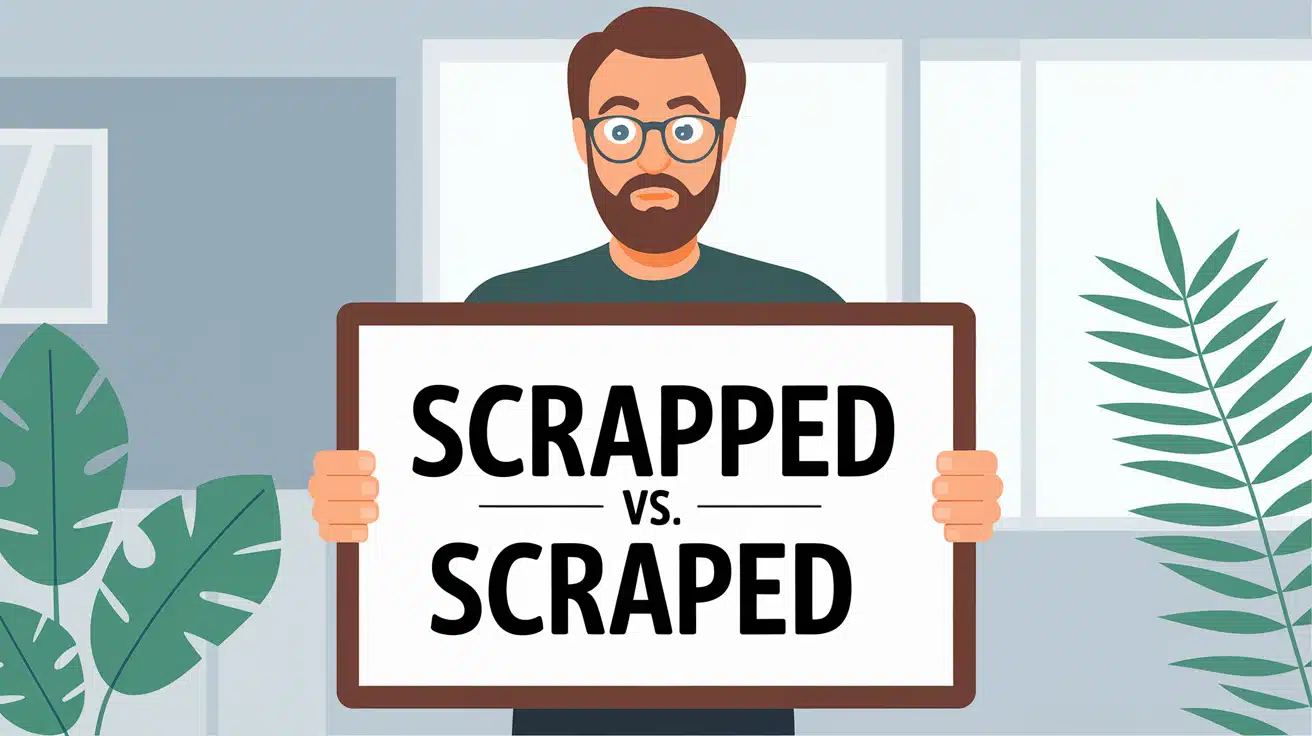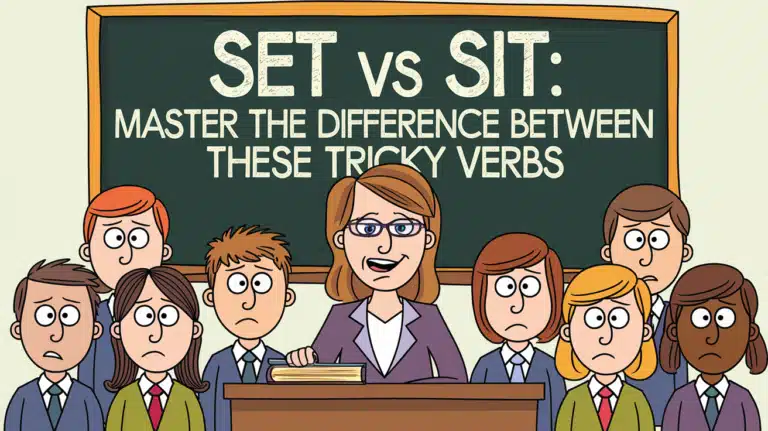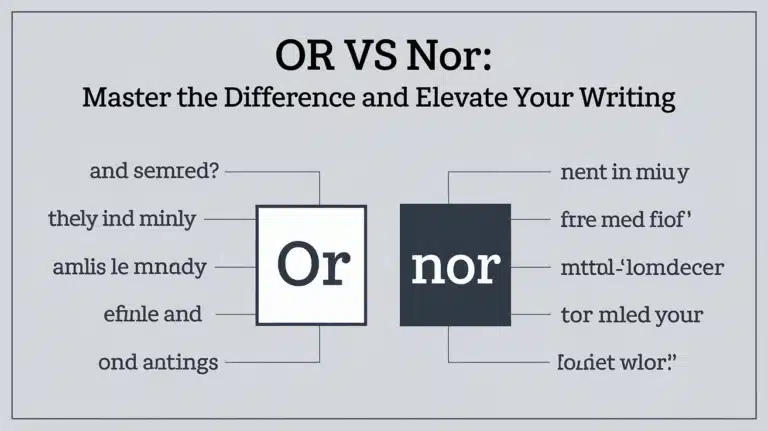Scrapped vs. Scraped: Clearing Up One of English’s Most Confusing Mix-Ups
Have you ever found yourself hesitating between “scrapped” and “scraped” while writing? You’re not alone. This linguistic tug-of-war has tripped up many a writer, confusing both casual conversations and professional communication. Let’s dive into the depths of these confusing terms, explore their meanings, and clear up the muddy waters of their usage once and for all.
The Great Debate: Why the Confusion?
At first glance, “scrapped” and “scraped” might seem like hetero-graphs – words that are spelled differently but sound the same. However, they’re not quite identical twins in pronunciation, which adds to the confusion. Both words share a common ancestor in Old Norse, but they’ve evolved to have distinct meanings and applications in modern English.
Read More About: Excel or Excell: Mastering the Correct Spelling and Beyond
Scrapped: When Plans Go to the Junkyard
The term “scrapped” is often used when something is discarded or abandoned. It’s the past tense of “scrap,” which means to get rid of or cancel.
Here’s a quick breakdown of its usage:
- In project management: “The team scrapped the old design in favor of a more innovative approach.”
- In manufacturing: “The faulty parts were scrapped and sent for recycling.”
- In everyday life: “We scrapped our weekend plans due to the unexpected storm.”
Scraped: From Scratches to Data Collection
“Scraped,” on the other hand, has multiple meanings that range from physical abrasions to digital data collection.
- Physical context: “I scraped my knee when I fell off the bike.”
- Cooking: “She scraped the burnt toast before serving breakfast.”
- Tech world: “The company scraped data from various websites for market research.”
Face-Off: Scrapped vs. Scraped
To truly understand the differences between these terms, let’s put them head-to-head:
| Aspect | Scrapped | Scraped |
|---|---|---|
| Primary meaning | Discarded or abandoned | Removed surface layer or collected data |
| Common contexts | Projects, plans, materials | Physical surfaces, cooking, data |
| Emotional connotation | Often negative (waste, failure) | Neutral to slightly negative |
| Related noun | Scrap (leftover material) | Scrape (an abrasion) |
Real-World Examples: Seeing is Believing
Let’s explore some real-life scenarios to cement our understanding of these terms:
“Scrapped” in Action
- “The government scrapped the controversial bill after public outcry.”
- “Tesla scrapped plans for a cheaper Model Y, focusing on higher-end vehicles.”
- “Old smartphones are often scrapped for their valuable metals.”
“Scraped” Scenarios
- “The chef scraped the vanilla seeds from the pod to flavor the custard.”
- “Researchers scraped social media posts to analyze public sentiment about the election.”
- “The car’s paint was scraped when it brushed against the garage wall.”
“In the digital age, the line between ‘scrapped’ data and ‘scraped’ data is increasingly blurry.” – Anonymous Data Scientist
The Evolution of Scrapping and Scraping
Both words have interesting etymological roots that help explain their current usage:
- Scrapped: Derived from Old Norse “skrapa,” meaning to scratch or scrape. It evolved to mean “discard” in the 19th century, likely from the practice of scrapping metal.
- Scraped: Also from Old Norse “skrapa,” but retained its original meaning of removing a surface layer. The data collection meaning is a recent addition, emerging with the rise of the internet.
Beyond the Basics: Synonyms and Related Terms
To enrich your vocabulary, here are some alternatives:
Synonyms for Scrapped:
- Abandoned
- Discarded
- Junked
- Shelved
- Axed
Synonyms for Scraped:
- Abraded
- Grazed
- Scratched
- Harvested (for data)
- Extracted
Mastering the Art of Scrapped vs. Scraped
To help you remember the difference, try this mnemonic:
- Scrapped ends with “-pped” like “dropped” – think of dropping or discarding something.
- Scraped ends with “-ped” like “wiped” – imagine wiping or removing a surface layer.
Practice Exercise
Fill in the blanks with either “scrapped” or “scraped”:
- The old car was __ and sent to the junkyard.
- She __ the mud off her boots before entering the house.
- The team __ their original strategy after the market shift.
- The website __ customer reviews to improve their service.
(Answers: 1. scrapped, 2. scraped, 3. scrapped, 4. scraped)
The Cultural Impact of Scrapped and Scraped
These words have found their way into various aspects of our culture:
- Environmental discussions often involve “scrapping” old technologies for more sustainable options.
- The tech world debates the ethics of “scraping” personal data from social media platforms.
- In literature, characters often face the emotional turmoil of “scrapped” dreams or “scraped” knees as metaphors for life’s challenges.
Case Study: The Scrapped Mars Mission
In 2020, due to budget constraints, NASA scrapped plans for a Mars sample return mission. This decision highlights the weight of the word “scrapped” in scientific contexts. It wasn’t merely postponed or altered – it was completely abandoned, illustrating the finality often associated with this term.
Conclusion:
Understanding the nuances between “scrapped” and “scraped” is crucial for clear, effective communication. While they may sound similar, their meanings and usage are distinct:
- Scrapped implies discarding or abandoning something entirely.
- Scraped involves removing a surface layer or collecting data.
By mastering these terms, you’ll enhance your writing precision and avoid common pitfalls. Remember, language is a tool for clarity – use it wisely, and you’ll never be confused or have your message scrapped due to misunderstanding.
Now that we’ve unraveled this linguistic knot, go forth and use these words with confidence. Your communication skills will thank you!







